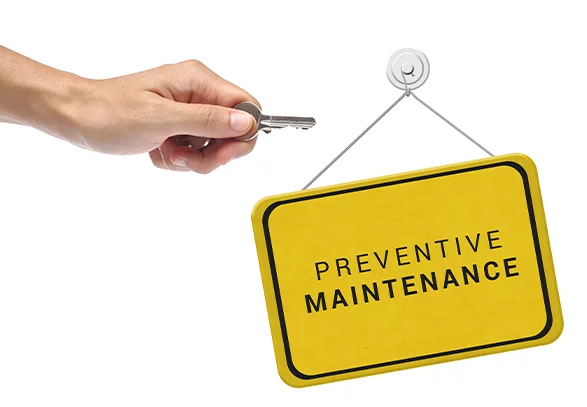The manufacturer provides a regular maintenance schedule; such maintenance is more extensive than the daily inspection. This does not only include lubrication and oil changes, but also a full-scale inspection of the entire machines. All trucks in your fleet should have a regular maintenance plan that should be specific for each model. The operator’s manual of each truck describes scheduled maintenance or service intervals.
A Truck in MHE or heavy equipments is not like a passenger vehicle or commercial truck. The options for its use are diverse and thus many components and maintenance requirements differ. In order to be able to work with a forklift, safety requirements have to be implemented and met prior and during the work. BADAK recommends deploying only those workers trained by BADAK and skilled technicians when performing servicing activities or repairs of BADAK machines. Never let your drivers repair forklifts themselves.
Only use BADAK’s technicians for maintenance and repairs of your machines. Fully equipped customer service vehicles and the know-how required to maintain the machines. Thus, you can rest assured that skilled BADAK service technicians can be trusted. All BADAK service technicians have the repair manuals and software versions necessary to perform quick and quality repairs.
Service technicians must also be trained in safety measures such as the correct jacking and securing of machines, the use of the correct tools and wearing protective clothes.
If your employees wish to maintain batteries, make sure that they wear appropriate gear and are trained appropriately. Electric devices are subject to special maintenance requirements that must be satisfied at all events.
The safe and smooth operation of the truck can be affected by the quality of your regular servicing activities. Therefore, only use skilled BADAK technicians and spare parts approved by BADAK. Original BADAK spare parts ensure proper fitting, durability and safe operation of your machines. Parts not approved by BADAK may not work properly and might result in early wear or accidents.



